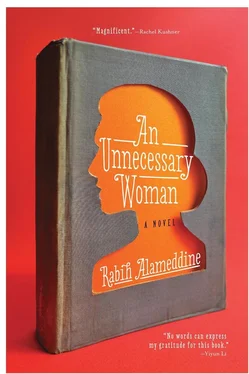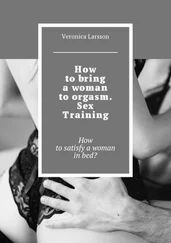My eyes, with a will of their own, stare ahead, concentrate on the small pan I put under the radiator when I let the air out. A rusty water drop hangs on the pipe above it, waiting patiently to join its sisters who have stained the aluminum.
The kitchen is noisy, the city drawing in its morning breaths, horns and traffic and rain on the street, and Joumana talking softly, talking to me.
“What’s in the boxes?” She repeats the question a few times in response to my silence. “We should get them out of there and see what we can salvage.”
How can I explain my esoteric vocation, my furtive life?
This is the private source of meaning in my life.
“Translations,” I say. “I’m a translator.” I hesitate. What I said doesn’t ring true in my ears. I sound like a liar. “I was,” I add. My heart feels too exhausted to beat. “I was a translator.”
Joumana looks confused, her eyebrows arch into question marks. Her eyes concentrate on the lower half of my face as if she intends to lip-read. If I’d said I had bags of heroin in the cartons, she’d have been less shocked. She is a decent woman who isn’t used to deciphering the mutterings of monsters.
“Let’s get to work,” she says in a commanding tone. “Let’s get them out of those rooms.”
As soon as I try to move, I teeter like a giraffe that’s gorged herself on fermented fruit. Marie-Thérèse of the kind face wraps her arm around my waist and steadies me. My forearm rests on her shoulder. I feel both helpless and shiftless. I wish to escape all this and return home, except I am home.
“Sit,” Marie-Thérèse says, leading me to my armchair. “Catch your breath for a minute. We’ll clear the boxes out.” She hesitates for a moment, as if she intends to ask a most portentous question. “Do you have a stepladder, or should I get mine?”
I’m upset at myself, not just for blubbering in front of strangers like a little girl during kindergarten recess, but for blubbering at all. I try to control myself. In my comforting armchair, I observe the three women hustle. I try to stand up; my thigh muscles quiver, my legs give way, and I sit back down. Only for a minute, I tell myself, less than, I lie to myself. I feel like a slimy toad pressing into the mud, unblinkingly eyeing my nothingness. Spinoza has little if anything for me this morning.
Fadia had gone up to her apartment and returned with two large bedsheets and at least eight towels. Now all three sally back and forth, carrying out soppy crates one by one. They seem synchronized, as if they’ve been clearing out flood-damaged translations all their lives, as if they grew up in one of the villages on the banks of the Euphrates where this kind of work is not unusual. One of them enters the dark, another exits carrying a box from the underworld. I notice for the first time that Joumana’s feet are as flat as a duck’s. The smell of rot wafts through the apartment, the scent of decay permeates my home. Sadness and frustration well up inside me. I should stand, but I can’t yet. As they work, I can do nothing but twiddle my thumbs.
I must get stronger, fortify myself. O Flaubert, show me how to seal my chamber, send me your mason. Fear, sorrow, keep out these marauders and pillagers, this anger, this guilt, this hopelessness.
I feel nostalgic for my once arid heart that knew how to cope with such loss.
Non fui, fui, non sum, non curo.
In silence, I help my neighbors move the crates out of Egypt. I am able to reach the high ones more easily. Ahead of me Fadia steps on the Israeli landmine, a hand’s width south of the drain. I avoid the spot, still think my slipper will be soiled if it hovers anywhere near where the stain had been. The damp cardboard feels like boiled cabbage in my hands. We line the crates up on the towels and bedsheets, in the kitchen, in the living room, in the reading room, caskets of war dead being returned home. I should stand at attention and salute — so many national anthems, so many countries in the pile. I wish to fire twenty-one guns.
Finally, Joumana kneels before one of the coffins, a mourner of sorts. As her left knee lowers, it knocks the English version of The Encyclopedia of the Dead off the side of the box (English version on the left/west, French on the right/east); the book falls a few centimeters to the floor with a minimal thud. She hesitates, but only for a moment. An airy gasp escapes my throat.
What unaccustomed sounds
Are hovering on my lips.
Joumana’s knees rest on the towel and cradle the crate. Her left hand gestures for me to calm down, her palm extended. Her right hand holds my chef’s knife. She saws through the masking tape in four places.
The manuscript is wet, of course. The first page is legible since it contains only the title, Danilo Kiš’s name, and mine. Joumana lifts the title page and sighs. Underneath, the pages are damaged. There seems to be a dry section in the middle of each, the size of a young woman’s mittened hand. But the rest of the page, the rest — the smudging, the discoloring, the smell — death, as it always does, creeps toward the core. Mine certainly does.
I can’t help myself. I begin to weep again, silently though, less embarrassingly. Joseph Roth ends Flight Without End with the sentence: “No one in the whole world was as superfluous as he.” I beg to differ. No one in the whole world is as superfluous as I. Not Franz Tunda, Roth’s protagonist, no. I am the one who has no occupation, no desire, no hope, no ambition, not even any self-love.
From out of nowhere, it seems, Fadia’s hands reach up from behind and gently massage my shoulders. I resist the urge to go Merkel to her Bush. I allow her hands to touch me.
I can’t help myself. My mind leads my thoughts to death on a leash.
Arbus slashed her wrists, as did Rothko. Woolf walked into the river and drowned herself. Hemingway shot himself in the head, of course. Plath, Hedayat, and Borowski put their heads in the oven. Améry swallowed an overdose of sleeping pills in 1978 and didn’t wake up the next day refreshed. Neither did Pavese in 1950. Gorky (Arshile, not Maxim) hanged himself. Levi allegedly jumped to his death.
Then there’s the strange suicide story of Potocki, who shot himself in the head with a silver bullet. Every morning for a few months, he worked at filing off the strawberry-shaped knob of a sugar bowl his mother had given him, until he freed it and used it as a bullet. Paging Dr. Freud.
No composer of note, or at least none that I know of, committed suicide. You would think if anybody would have, it would have been Schnittke, but he didn’t. Schumann jumped, but he had bipolar disorder, and as if that weren’t enough, syphilis spirochetes were rejoicing in his brain. In any case, he didn’t die from the attempt. Tchaikovsky may or may not have intentionally drunk that bad water. I wouldn’t count those two. Music seems to be the healthiest of all the silly arts. I should point out, though, that composers tend to die at a younger age than the average human, whereas conductors die older. I don’t know why that’s so, but it intrigues me.
Syphilis spirochetes felled both Schus, — mann and — bert.
Fadia notices that I’m feeling calmer and more collected. Her hands drop to her sides.
“I can read most of this,” says Joumana. She riffles through the pages of Danilo’s and my collaboration.
“Please don’t,” I say.
“I mean it’s legible,” she says, a little amused. “I’m able to read it, not that I’m going to.” She puckers her lips and blows on the page in her hands. She waves it back and forth, trying to fan out the dampness, but stops, probably worried that the page will disintegrate.
“We must separate all the pages,” Marie-Thérèse says, “and dry them. It’s the only way we can salvage them.”
Читать дальше












